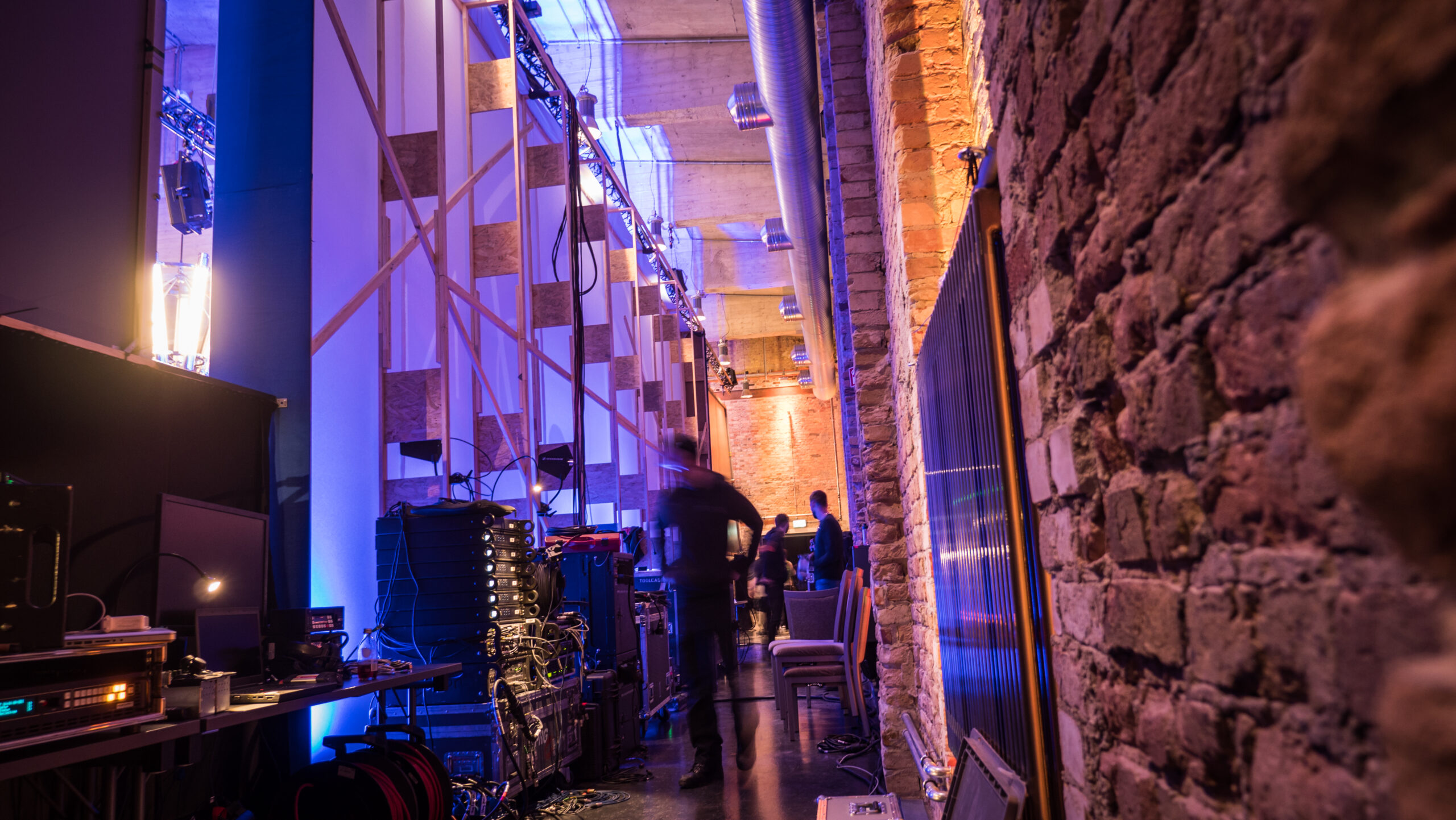Comprehending Event Production: Why It Is Necessary for Effective Events
Event production plays a critical role in shaping effective celebrations. It includes careful planning, coordination, and implementation to ensure every detail straightens with the event's vision. This process not just enhances attendee experiences however also helps with purposeful links amongst individuals. Comprehending the intricacies of event production can greatly influence the total end result. What are the crucial elements that add to an effective event, and just how can they be effectively taken care of?
The Duty of Event Production in Creating Memorable Experiences
Although many aspects add to the success of an occasion, event production plays a critical function in crafting memorable experiences. This diverse process incorporates numerous elements, consisting of preparation, logistics, and implementation. Efficient event production warranties that every detail lines up with the total vision, producing a seamless flow that captivates guests. By coordinating timelines, taking care of resources, and supervising technical elements, event manufacturers develop a structure for impactful experiences.Moreover, they curate settings that reverberate with the target audience, boosting engagement and psychological link. From selecting suitable venues to incorporating ingenious innovation, the choices made during production substantially affect how participants regard and remember the event. By focusing on high quality and interest to information, event production changes common events right into phenomenal minutes, leaving long lasting perceptions. Inevitably, the skilled orchestration of these components specifies the essence of an event, showcasing the importance of specialist event production in achieving extraordinary end results.
Secret Elements of Successful Event Production
Efficient event production rests on a number of essential parts that ensure success. Preparation and sychronisation develop a strong foundation, while technological configuration demands deal with logistical needs. Furthermore, applying audience involvement approaches improves the overall experience, making the event unforgettable.
Planning and Sychronisation
Planning and sychronisation function as the foundation of effective event production, making sure that every information aligns flawlessly to develop a remarkable experience. Effective planning entails establishing a clear vision and objectives, while coordination requires the meticulous organization of logistics, timetables, and sources. A well-defined timeline is necessary, leading all stakeholders with vital turning points and jobs. Interaction plays a crucial duty, promoting collaboration among group participants, suppliers, and venue team. Regular meetings and updates help to address obstacles without delay, making sure that every person stays straightened with the event objectives. Inevitably, an organized method to planning and coordination not just boosts performance however likewise significantly contributes to the overall success and enjoyment of the event for attendees and organizers alike.
Technical Setup Requirements
An effective event relies greatly on its technical setup requirements, which incorporate vital components such as audio-visual equipment, lights, hosting, and connectivity. Audio-visual equipment includes microphones, audio speakers, and projectors, ensuring that presentations and performances are delivered plainly. Proper illumination improves the atmosphere and highlights essential locations, while staging offers the needed platform for audio speakers and entertainers. Connection, consisting of Wi-Fi and electric access, is crucial for smooth communication and technology combination. Each part must be meticulously prepared and carried out, customized to the event's specific demands. Poor technological arrangements can bring about disturbances, adversely affecting the overall experience for guests, emphasizing the value of extensive preparation and focus to detail in event production.
Audience Interaction Strategies

The Value of Preparation and Coordination
Planning and coordination are essential to the success of any kind of event production. Efficient timeline management, source allowance strategies, and group interaction dynamics play vital roles in ensuring that all components collaborated effortlessly. Without a structured approach to these elements, events run the risk of encountering delays, spending plan overruns, and miscommunication among employee.
Efficient Timeline Administration


While effective event production typically depends upon creativity and execution, effective timeline administration stays a necessary element that can not be forgotten. A well-structured timeline serves as the backbone of any kind of event, making certain that each stage is carried out in a timely way. It enables the sychronisation of different jobs, from location setup to guest arrivals, while protecting against prospective traffic jams. By clearly describing deadlines and responsibilities, event coordinators can maintain focus and adapt to unexpected difficulties. Furthermore, a carefully crafted timeline fosters interaction amongst staff member, advertising liability and partnership. Eventually, effective timeline management not just improves operational effectiveness however also contributes considerably to the general success and smooth implementation of the event, leaving guests with a remarkable experience.
Resource Allocation Methods
Efficient resource appropriation strategies are important for the effective execution of any event. Correct preparation enables event organizers to recognize and distribute resources, such as funds, personnel, and materials, in a way that takes full advantage of effectiveness. By examining the details needs of each element of the event, organizers can prioritize tasks and assign sources accordingly. Sychronisation amongst various departments makes certain that all components, from accommodating audiovisual needs, Check Out Your URL are adequately supported. This strategic technique not only reduces waste but additionally boosts the total experience for participants. In addition, anticipating prospective difficulties and having contingency plans in position enables smoother procedures. Ultimately, efficient resource allowance contributes substantially to accomplishing event objectives and ensuring a memorable celebration.
Group Interaction Characteristics
Exactly how can smooth interaction among staff member change the event production procedure? Effective interaction is crucial for collaborating jobs, sharing updates, and addressing obstacles in real-time. When team participants participate in open dialogue, they can quickly recognize possible problems and develop services collaboratively, minimizing hold-ups and misconceptions. This dynamic fosters a cohesive setting where every person understands their duties and obligations, resulting in a much more synchronized initiative. In addition, normal check-ins and comments loopholes improve responsibility and warranty placement with the event's objectives. By prioritizing communication approaches, groups can streamline workflows, boost spirits, and ultimately elevate the general top quality of the event. Successful celebrations hinge on the ability to communicate properly, making it a crucial element of event production.
Enhancing Participant Interaction Through Creative Layout
Creative style plays an essential role in discover here improving participant involvement at events, as it cultivates an immersive setting that astounds individuals' focus. By integrating cutting-edge visuals, interactive aspects, and thematic style, event organizers can create remarkable experiences that reverberate with participants. Thoughtful layout styles advertise movement and expedition, encouraging guests to interact with displays and each other.Incorporating technology, such as increased fact or live ballot, more enriches the experience, enabling real-time responses and interaction. In addition, sensory aspects like lights, sound, and scent can evoke emotions and produce a more engaging atmosphere.The use storytelling with design aids share the event's purpose and message, making it a lot more relatable for guests. Ultimately, imaginative style not just boosts involvement but likewise deepens links amongst individuals, leaving an enduring impression that expands beyond the event itself. This tactical method to design is necessary for effective events.
Taking care of Logistics for a Smooth Implementation
While the excitement of an event can draw attendees in, taking care of logistics is crucial to secure a smooth implementation. This includes thoroughly collaborating different components, from venue selection and format to wedding catering and transportation. Reliable logistics administration ensures that all components align, allowing for a smooth flow from registration to the conclusion of the event.Additionally, a clear communication strategy amongst all stakeholders is necessary. This includes team, vendors, and volunteers, that need to be educated of their duties and obligations. Expecting prospective challenges, such as equipment failing or unanticipated weather conditions, can even more improve the event's success.Creating a comprehensive timeline aids maintain the team on track and permits timely changes. Eventually, well-managed logistics not just help with a delightful experience for participants yet likewise show the professionalism and integrity of the coordinators, adding to the general success of the gathering.

The Effect of Technology on Event Production
What duty does modern technology play in forming modern-day event production? Innovation has actually come to be a cornerstone of effective event production, improving both planning and execution processes. From advanced enrollment systems to interactive apps, innovation streamlines guest management and boosts interaction. Online event systems enable coordinators to reach larger audiences, damaging geographical obstacles and facilitating hybrid gatherings that incorporate check these guys out in-person and on-line experiences.Additionally, audiovisual technologies, such as high-def screens and sound systems, elevate the high quality of discussions and efficiencies, guaranteeing a memorable experience for attendees - event production charlotte. Social network integration makes it possible for real-time feedback and communication, fostering neighborhood engagement in the past, during, and after the event. Data analytics devices aid organizers in keeping track of participant habits and preferences, allowing tailored experiences that reverberate with varied target markets. In general, the integration of innovation in event production not only improves operational efficiency however also improves guest experiences, inevitably contributing to the success of the event
Evaluating Success: Gauging the End Results of Your Event
Success in event production rests on reliable assessment, which includes gauging a selection of outcomes to analyze the total impact of an occasion. To accomplish this, organizers can utilize both qualitative and measurable metrics. Quantitative measures might include attendance numbers, ticket sales, and profits produced, while qualitative analyses may entail participant fulfillment studies and comments forms.Additionally, evaluating social networks interaction and media protection can provide insights right into the event's reach and brand influence. Contrasting these metrics versus predefined goals assists identify if the objectives were met.Furthermore, post-event debriefs with the planning group can uncover lessons discovered and areas for improvement. By systematically evaluating these outcomes, event manufacturers can boost future gatherings, making sure continuous development and success. Ultimately, an extensive analysis not only highlights accomplishments yet likewise informs calculated decisions for subsequent events, fostering a culture of quality in event production.
Often Asked Questions
What Certifications Should an Event Producer Have?
Event manufacturers ought to have strong organizational skills, creativity, and effective interaction abilities. A background in project monitoring, budgeting, and arrangement is essential. Appropriate accreditations and experience in varied event kinds better boost their credentials.
How Can I Reduce Event Production Expenses Efficiently?
To properly decrease event production costs, one can streamline supplier choice, discuss agreements, make use of internal sources, prioritize essential elements, execute modern technology for efficiency, and explore sponsorship opportunities to counter expenditures without jeopardizing top quality.
What Are the Common Obstacles in Event Production?
Common difficulties in event production include budget plan restraints, logistical control, supplier administration, time limitations, attendee involvement, technological difficulties, and unforeseen scenarios - event production charlotte. Each variable can significantly influence the overall success and smooth implementation of the event
How Do I Pick the Right Place for My Event?
Picking the ideal location entails considering aspects such as place, capacity, facilities, and budget plan. In addition, evaluating ease of access and setting ensures the chosen room lines up with the event's objectives and enhances the general participant experience.
What Is the Normal Timeline for Planning an Event?
The common timeline for preparing an occasion differs, however generally consists of stages such as idea advancement, venue option, supplier coordination, promo, and last prep work, usually extending several months to guarantee an effective implementation.